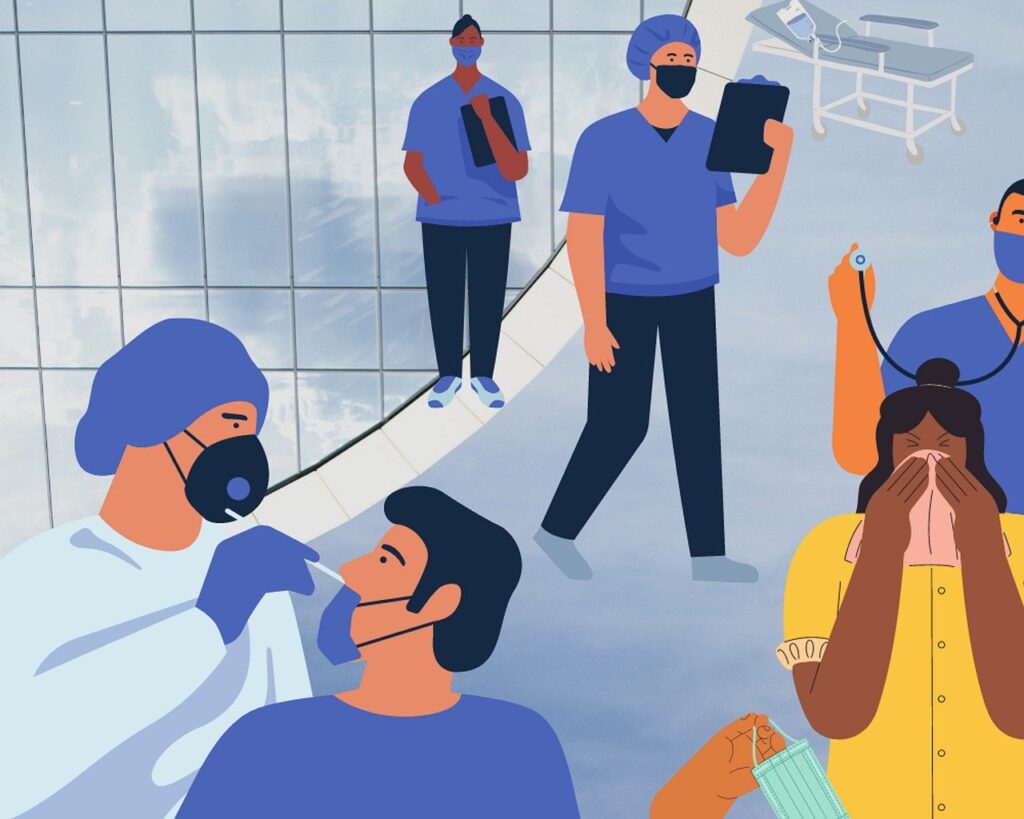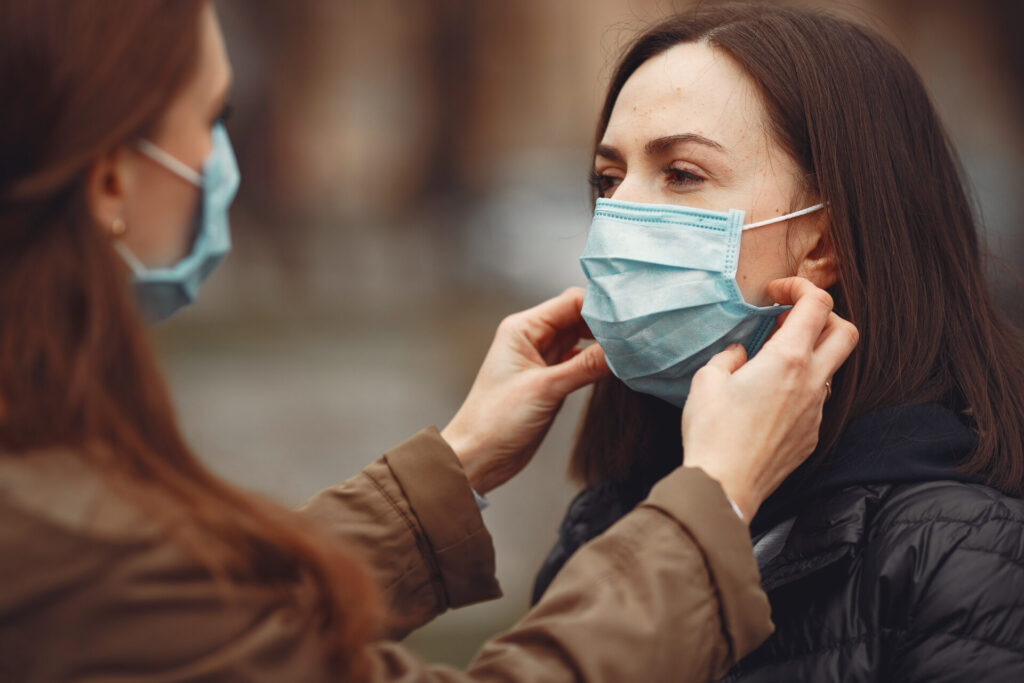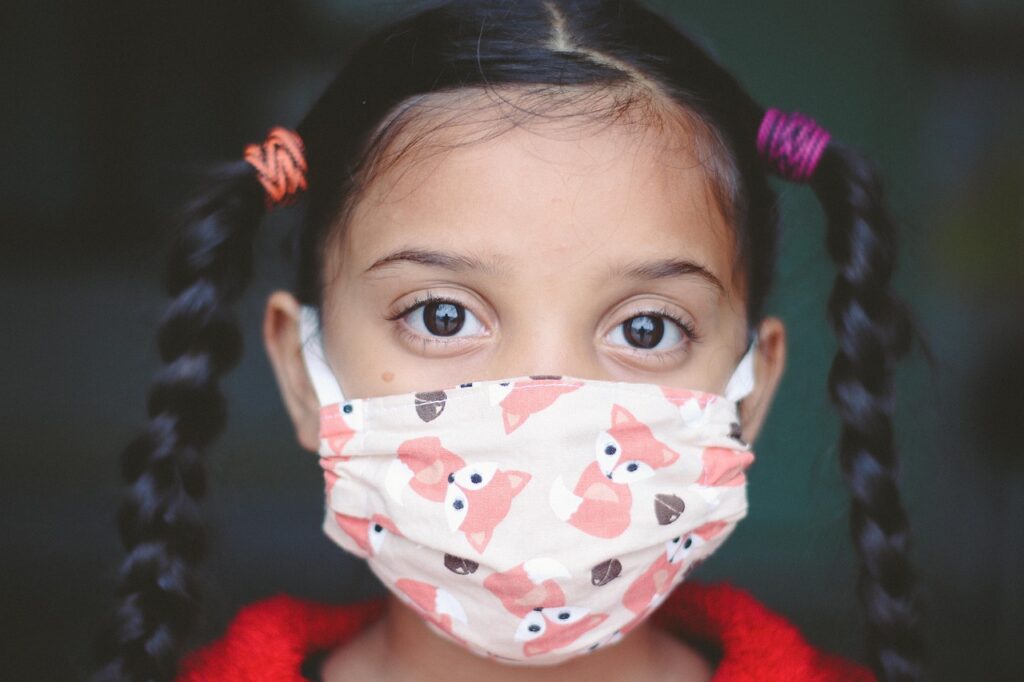Finding the Right Care: How to Get Help for Long COVID Symptoms Through Clinics and Specialists
Contents
- 1 Finding the Right Care: How to Get Help for Long COVID Symptoms Through Clinics and Specialists
- 1.0.0.0.0.1 Read DISCLAIMER
- 1.0.0.0.0.2 The material presented here is for general informational and educational purposes only and is not medical advice. Although we attempt to provide current and accurate information, this blog should not be used as a replacement for professional medical consultation, diagnosis, or treatment. In all cases, consult your physician or an accredited medical practitioner with regards to any medical condition or treatment. Do not ignore professional medical advice or wait for it on the basis of information provided by this blog. In a medical emergency, call emergency services immediately.
- 1.1 Introduction: When Recovery Doesn’t Feel Like Recovery
- 1.2 Understanding Long COVID: More Than Just Lingering Symptoms
- 1.3 Why Professional Help Matters
- 1.4 The Role of Long COVID Clinics
- 1.5 Specialists Who May Be Part of Your Care
- 1.6 What to Expect at a Long COVID Clinic Visit
- 1.7 When to Seek Help
- 1.8 Overcoming Barriers to Care
- 1.9 Emotional Support Alongside Medical Care
- 1.10 How to Prepare for Your Appointment
- 1.11 Building a Long-Term Recovery Plan
- 1.12 Looking Ahead with Hope
- 1.13 Conclusion
- 1.14 FAQs with Answers
Struggling with Long COVID? Learn how to find the right clinics, specialists, and support to manage lingering symptoms and improve recovery.
Read DISCLAIMER
The material presented here is for general informational and educational purposes only and is not medical advice. Although we attempt to provide current and accurate information, this blog should not be used as a replacement for professional medical consultation, diagnosis, or treatment. In all cases, consult your physician or an accredited medical practitioner with regards to any medical condition or treatment. Do not ignore professional medical advice or wait for it on the basis of information provided by this blog. In a medical emergency, call emergency services immediately.
Introduction: When Recovery Doesn’t Feel Like Recovery
For many people, recovering from COVID-19 was supposed to be a milestone—a return to normal life after days or weeks of illness. Yet for a surprising number, the story didn’t end with a negative test. Fatigue lingered. Breathing felt shallow. Sleep was never quite restful. Brain fog crept in during conversations and work. These lasting effects became known as Long COVID, and for those experiencing it, the journey of healing can feel confusing, exhausting, and even lonely.
If you find yourself in this place, you’re not alone. Seeking the right help is one of the most empowering steps you can take. This guide explores how to recognize lingering symptoms, why specialized care is essential, and how clinics and specialists are working together to help people rebuild their lives after Long COVID.
Understanding Long COVID: More Than Just Lingering Symptoms
Long COVID is not simply “taking longer than usual” to recover from an illness. It is a collection of symptoms that may persist for weeks or months, even after the initial infection has passed. These symptoms vary widely, ranging from fatigue and headaches to heart palpitations, digestive issues, or changes in mood and memory.
What makes Long COVID particularly challenging is its unpredictable nature. Two people may experience the condition entirely differently, and even within the same person, symptoms can fluctuate from day to day. This variability often makes diagnosis and management complicated, requiring the involvement of multiple specialists rather than a single point of care.

Why Professional Help Matters
It’s tempting to downplay ongoing symptoms, attributing them to stress, poor sleep, or simply needing more time to bounce back. But Long COVID requires careful attention. Many lingering effects are tied to inflammation, immune system disruption, or organ stress that should not be ignored.
Professional help ensures that symptoms are monitored correctly, underlying conditions are identified, and treatment plans are tailored to your needs. Clinics specializing in post-COVID care bring together expertise from multiple fields—pulmonology, cardiology, neurology, rehabilitation, and mental health—so patients don’t feel like they are piecing together answers on their own.
The Role of Long COVID Clinics
Specialized clinics are becoming hubs for coordinated care. Unlike general medical visits, these clinics are designed with the complexities of Long COVID in mind. They operate as multidisciplinary centers, bringing together specialists who can assess the lungs, heart, brain, muscles, and immune system simultaneously.
The value of these clinics goes beyond medical tests. They often provide rehabilitation programs, mental health support, nutritional counseling, and physical therapy tailored for post-viral recovery. This holistic approach recognizes that Long COVID impacts not just the body, but also the emotional well-being of patients who may feel isolated or misunderstood.
Specialists Who May Be Part of Your Care
Because Long COVID symptoms are so diverse, you may need to see different types of specialists depending on your experience. For those with persistent shortness of breath, pulmonologists evaluate lung function and recommend breathing exercises or medication. If palpitations or chest pain occur, cardiologists examine the heart and vascular system for post-viral changes. Neurologists often work with patients experiencing memory issues, dizziness, or neuropathy, while psychiatrists and psychologists support the mental health side of recovery, addressing anxiety, depression, or post-traumatic stress triggered by the illness.
Rehabilitation specialists—such as physical therapists or occupational therapists—play a critical role as well. They help rebuild stamina, teach pacing strategies, and ensure that patients don’t push themselves into cycles of “crash and recovery.” Nutritionists may also provide guidance on anti-inflammatory diets that support healing from within.
What to Expect at a Long COVID Clinic Visit
Walking into a clinic for the first time may feel overwhelming, but knowing what to expect can ease uncertainty. Your initial visit will usually involve a comprehensive health history and symptom review. Rather than focusing on a single issue, the team will look at your entire health picture—physical, cognitive, and emotional.
Diagnostic tests may be performed to evaluate oxygen levels, lung capacity, or heart rhythm. Bloodwork may assess inflammation markers or immune activity. Cognitive screening may be offered to identify subtle memory or focus issues. Based on findings, a care plan is created, often involving multiple specialists working in tandem.
Most importantly, you’ll gain a sense of validation. Long COVID symptoms are real, and being taken seriously by a medical team can itself feel like an essential part of healing.

When to Seek Help
It’s normal to feel tired after being sick, but if fatigue stretches into weeks, or if daily activities remain difficult long after recovery, it’s time to reach out for professional support. Warning signs include ongoing shortness of breath, persistent chest pain, irregular heartbeat, brain fog interfering with work or relationships, or emotional distress that feels unmanageable.
Trust your instincts. You know your body best. If something feels “off,” even in subtle ways, seeking help early can prevent complications and provide tools for managing symptoms more effectively.
Overcoming Barriers to Care
For many people, finding the right care can feel like another uphill battle. Waiting lists for clinics may be long. Some may not have access to specialized centers nearby. Insurance coverage or financial strain may add another layer of stress.
While these challenges are real, it’s important not to lose hope. Telehealth has become a lifeline, allowing patients to connect with specialists virtually. Primary care physicians can also act as advocates, coordinating referrals and bridging gaps when access to dedicated clinics is limited. Support groups, both online and in-person, can provide practical coping strategies and emotional validation while navigating the healthcare system.
Emotional Support Alongside Medical Care
Healing from Long COVID is not only a physical journey. The emotional toll can be heavy—frustration at lost energy, sadness over lifestyle changes, or fear about the future. Clinics and specialists often integrate counseling and peer support into their programs, recognizing that emotional resilience is key to recovery.
Sharing experiences with others going through the same challenges can be surprisingly healing. Knowing you are not alone reduces feelings of isolation and fosters hope. Many patients find that combining medical treatment with mindfulness practices, journaling, or gentle forms of exercise creates a sense of balance during uncertain times.
How to Prepare for Your Appointment
Preparation can make your clinic visits more effective. Keeping a symptom diary helps provide a clear picture of your daily experiences, showing patterns that may not be obvious in a single conversation. Tracking sleep, fatigue levels, exercise tolerance, and mental focus can guide specialists in tailoring recommendations.
Write down questions in advance to ensure you don’t forget important concerns during your appointment. Bring a trusted friend or family member if possible, as they can help take notes and provide emotional support. Being proactive creates a sense of control, which is empowering when so much about Long COVID feels unpredictable.
Building a Long-Term Recovery Plan
Recovery from Long COVID rarely follows a straight line. There may be periods of improvement followed by setbacks. Specialists emphasize the importance of pacing—finding the balance between activity and rest. Nutrition, hydration, sleep hygiene, and stress management all play critical roles in long-term healing.
Rehabilitation often involves gradual progress, celebrating small wins rather than expecting sudden transformations. Clinics provide frameworks for monitoring improvement, adjusting treatments, and maintaining hope during slow phases of recovery.

Looking Ahead with Hope
Living with Long COVID can be daunting, but medical understanding continues to grow, and specialized clinics are expanding to meet the needs of patients worldwide. The fact that care is multidisciplinary reflects a deeper truth: healing requires attention not just to symptoms, but to the whole person—body, mind, and spirit.
If you’re struggling, reaching out for help is not a sign of weakness but of strength. Every step toward finding the right clinic, specialist, or support group brings you closer to reclaiming your health and your life. Healing may take time, but with the right care, the journey forward is filled with possibility.
Conclusion
Long COVID is a reminder that healing doesn’t always follow a predictable timeline. But you don’t have to face it alone. From specialized clinics to dedicated specialists, resources are available to guide you through the complexity of recovery. Seeking help is one of the most important choices you can make. In doing so, you reclaim not only your health but also your sense of agency in shaping a future beyond illness.
FAQs with Answers
- What is Long COVID and how is it different from regular COVID-19?
Long COVID refers to persistent symptoms that continue for weeks or months after the initial infection has resolved. Unlike acute COVID, these symptoms linger and affect daily life. - What are the most common Long COVID symptoms?
People report fatigue, brain fog, shortness of breath, chest pain, digestive issues, sleep disturbances, and joint or muscle pain as frequent symptoms. - When should I consider seeking medical help for Long COVID?
If your symptoms interfere with your daily activities, do not improve after several weeks, or worsen over time, it’s time to consult a healthcare professional. - What kind of doctors specialize in treating Long COVID?
Depending on your symptoms, you may need pulmonologists, cardiologists, neurologists, or specialists in rehabilitation and integrative medicine. - How can Long COVID clinics help?
These clinics offer multidisciplinary care, bringing together specialists from different fields to address the complex and varied symptoms of Long COVID. - Can primary care doctors manage Long COVID symptoms?
Yes, many primary care doctors can manage your symptoms initially and may refer you to specialists if your condition requires more advanced care. - What tests are typically done for Long COVID patients?
Tests may include blood work, lung function tests, heart imaging, or neurological assessments, depending on your individual symptoms. - How do I prepare for an appointment at a Long COVID clinic?
Keep a detailed symptom diary, list your medications, and note how symptoms impact your daily life to give your doctor a clearer picture. - Are there treatments available for brain fog and fatigue?
While there is no single cure, strategies include pacing activities, cognitive therapy, proper sleep routines, and supportive care tailored to your needs. - Can lifestyle changes help with Long COVID recovery?
Yes, balanced nutrition, gentle exercise, stress management, and rest all play a role in improving recovery and managing ongoing symptoms. - Is mental health support important for Long COVID patients?
Absolutely. Anxiety, depression, and emotional exhaustion are common, so counseling or therapy can be an important part of healing. - How long does it take to recover from Long COVID?
Recovery varies greatly—some people improve within months, while others may have symptoms that last for a year or more. - Are Long COVID symptoms permanent?
For most people, symptoms improve over time, though the duration and severity vary. Ongoing medical support increases chances of recovery. - Can Long COVID affect people who had mild initial infections?
Yes, even people who had mild or no symptoms during the acute phase can develop lingering post-COVID conditions. - What role do rehabilitation programs play in recovery?
Rehabilitation, such as pulmonary therapy, physiotherapy, or occupational therapy, helps patients regain strength, mobility, and quality of life.

Understanding game odds is key to enjoying casino fun! Seeing platforms like wjpeso login adapt to local payments (GCash, PayMaya) is smart – convenience matters! Responsible gaming is always the best bet, of course. 😉
LuvabetBR, eh? Specifically for us Brazilians! Nice! Looks like they’ve got a good selection of sports and casino games. I’ll be checking out their Brazilian Serie A odds for sure. Come on Brasileirão! Time to win big boys: luvabetbr
For all you lottery number crunchers, xoso888soicau could be worth a look! The analysis tools are pretty useful. Good luck picking those numbers! Check it out: xoso888soicau
Slot nổ hũ tại 888SLOT nổi tiếng “mát tay” – nhiều thành viên đã trúng Jackpot hàng trăm triệu chỉ sau vài vòng quay. TONY01-06S
Sports betting with 188betthethao, nice one! I am always looking for a good deals so i will test it right now. Just click here: 188betthethao
**aquasculpt**
aquasculpt is a premium metabolism-support supplement thoughtfully developed to help promote efficient fat utilization and steadier daily energy.
**mounja boost official**
MounjaBoost is a next-generation, plant-based supplement created to support metabolic activity, encourage natural fat utilization, and elevate daily energywithout extreme dieting or exhausting workout routines.
**herpafend official**
Herpafend is a natural wellness formula developed for individuals experiencing symptoms related to the herpes simplex virus. It is designed to help reduce the intensity and frequency of flare-ups while supporting the bodys immune defenses.
**back biome**
Mitolyn is a carefully developed, plant-based formula created to help support metabolic efficiency and encourage healthy, lasting weight management.
Howdy! This is my first comment here so I just wanted to give a quick shout out and say I genuinely enjoy reading through your articles. Can you suggest any other blogs/websites/forums that cover the same subjects? Thank you!
Yo, check out 51clublogin! Been using it for a bit and it’s pretty solid. Easy to navigate, no weird glitches, just good vibes. Definitely worth a look if you’re after something reliable. For more details, see 51clublogin.
Hey all you cool cats and kittens, been messing around with 92cocologin and it’s got some good stuff. Worth checking out if you’re looking for something new. Learn more at 92cocologin.
Alright gamers, time to shine! g555game has a lot of cool things to choose. I defintely recommend it. Checkout the official website here at g555game.